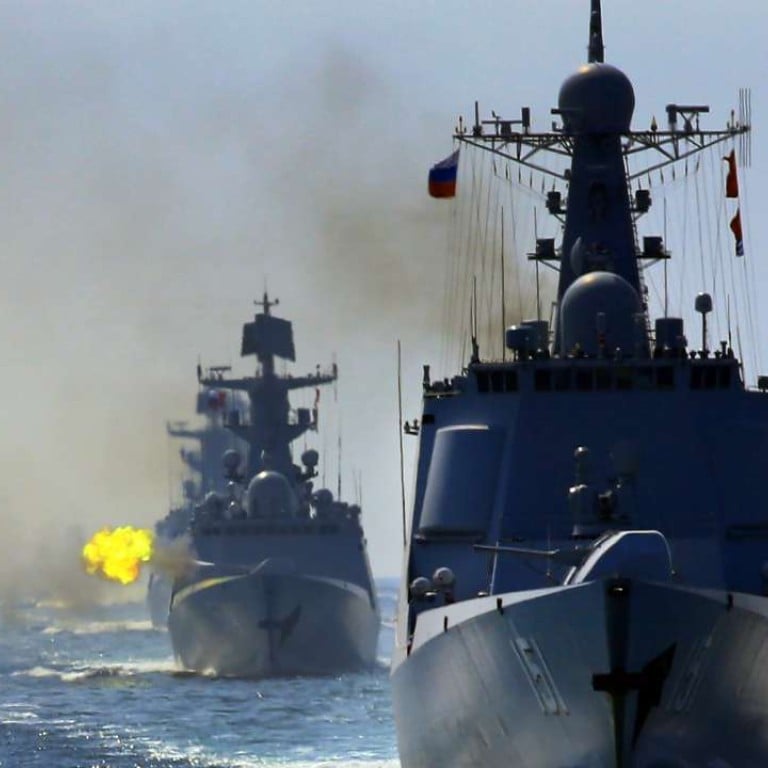
Two regional rows set to overshadow Beijing security forum
Row with Singapore over South China Sea ruling and deployment of US anti-missile system in South Korea complicate agenda
The spat between China and Singapore over a ruling on South China Sea claims and Seoul’s decision to allow a US anti-ballistic-missile system to deployed on its territory are likely to overshadow a regional security forum starting in Beijing on Monday, analysts say.
The seventh Xiangshan Forum, dubbed Asia’s “new security architecture” by Beijing, will officially have four main themes: the role of militaries in global governance, responding to new security challenges in the Asia-Pacific region through cooperation, maritime security cooperation, and international terrorist threats and countermeasures.
China hopes the Xiangshan Forum will be another influential international security opinion platform
The three-day forum will open just 10 days after South Korea announced a new site for a US Terminal High Altitude Area Defence (THAAD) system designed to counter North Korea’s missile threat, and 19 days after a report in the nationalist tabloid Global Times, owned by Communist Party mouthpiece People’s Daily, sparked an escalating row over Singapore’s role in territorial disputes in the South China Sea.
“The South China Sea, and even the East China Sea, as well as the THAAD deployment will unavoidablely be discussed by participanting countries,” Beijing-based naval expert Li Jie said.
Defence Ministry spokesman Senior Colonel Yang Yujun said South Korea was among the 60 invited countries sending a delegation to the forum, while Singapore told the South China Morning Post it would be represented by a delegation headed by Ong Ye Kung, its acting Minister for Education and Senior Minister of State for the Ministry of Defence.
Professor Jin Yinan, former director of the strategic research institute at the People’s Liberation Army’s National Defence University, told state-owned China National Radio on September 30 that Beijing should impose sanctions and retaliate against Singapore to make the city state “pay the price for seriously damaging China’s interests”.
Jin’s remarks came amid stern criticism by Beijing of Singapore’s reported insistence on including content backing the Philippines’ position on an international arbitration ruling on claims to the South China Sea in the final communique at the Summit of the Non-Aligned Movement (NAM) in Venezuela early last month.
Another Beijing-based miliary expert, who requested anonymity, said the war of words between Chinese state media and Singapore might be extended to the forum.
“But I don’t think China needs to bring its discontent with Singapore into the public arena,” he said. “It’s improper for a great power to scold such a tiny country so openly. There wouldn’t be any wiggle room for Beijing in the future in case it needs to repair ties with Singapore.”
Li said that it was “impractical” to expect China and the 60 other countries represented at the forum to achieve any results or consensus and what should be expected was “merely debates”.
Dr Rajeev Ranjan Chaturvedy, a research associate at the Institute of South Asian Studies at the National University of Singapore and one of more than 100 security experts invited to attend the forum, said he had expected delegates from other Southeast Asian countries would give various response to the July’s ruling by an international tribunal at The Hague that rejected China’s claims in the contested waters.
“The South China Sea is a very important waterway and significant for strategic and economic reasons,” he said, adding that he believed China would seek to use the forum to promote President Xi Jinping’s “One Belt, One Road” development strategy and other regional initiatives.
Beijing has touted the Xiangshan forum as an alternative to the annual Asian Security Summit in Singapore, known as the Shangri-La dialogue, which has been co-hosted by the Singaporean government and British think tank the International Institute for Strategic Studies since 2002.
“China hopes the Xiangshan Forum will be another influential international security opinion platform in northern Asia, comparable with the Shangri-La dialogue in southern Asia,” Beijing-based military observer Song Zhongping said.
The forum in Beijing is co-hosted by the China Association for Military Science and the China Institute for International Strategic Studies.

